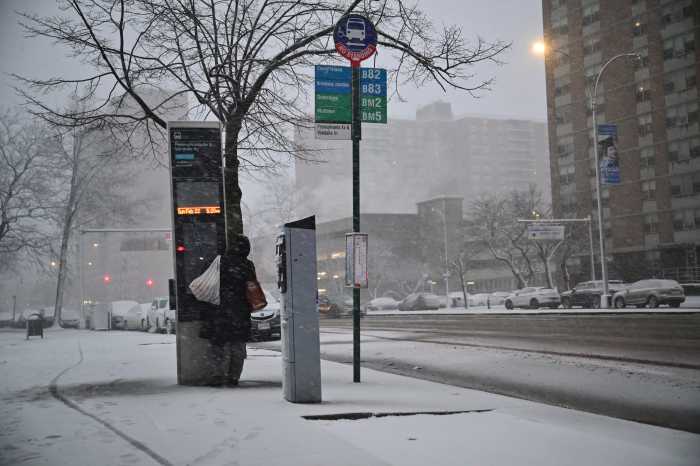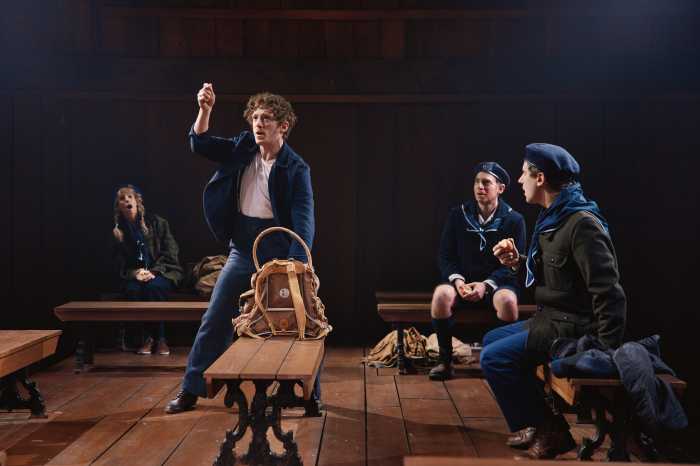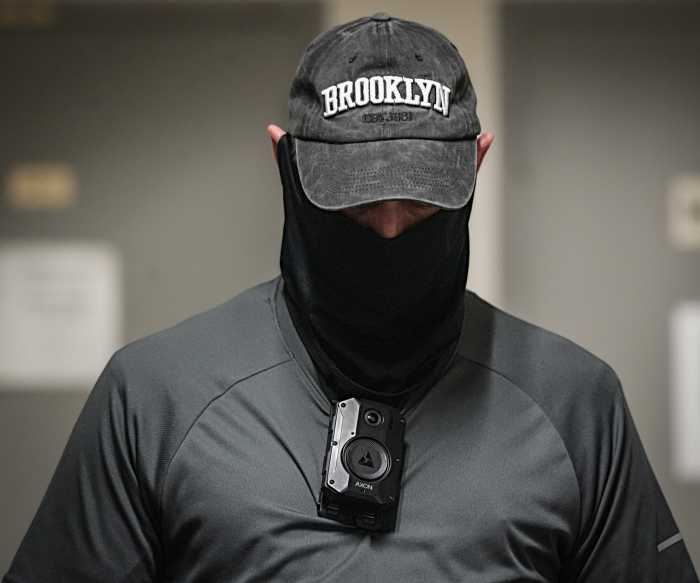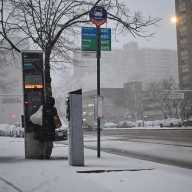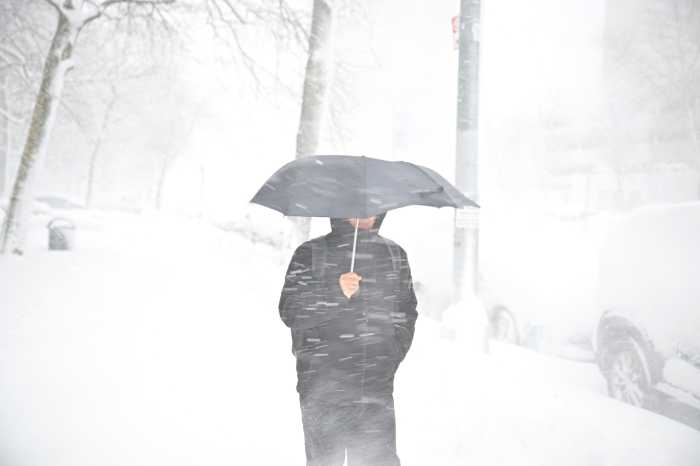BY ALINE REYNOLDS | Despite recent mitigation tactics, helicopters operating out of the Downtown Manhattan heliport continue to disturb neighborhood residents, workers and tourists — prompting local politicians to continue rally against chopper tours of the area.
Such were the principal messages of several testifiers at a recent City Council hearing on the continued development of Governors Island and recent committee meetings held by Community Board 1.
Testifier Patti Reilly, National Park Service superintendent of the Governors Island National Monument, alleged that the noisy choppers have had a negative impact on visitors’ trips to the island — specifically, on N.P.S.’s tourist programs.
“Air tour operators buzz close over the island repeatedly throughout the day, causing disruptions of up to a minute in length when visitors must hold their ears, or cannot hear the ranger, or become distracted and look up, or a combination of these reactions,” said Reilly. “This can happen repeatedly during a 45-minute-long walking tour, outdoor dramatic performance, or reenactment; and each time, it completely breaks the mood and the experience.”
Robert Pirani, executive director of the Governors Island Alliance, concurred that the overhead noise interferes with island-based programs and lessens the value of the island as a public asset. “We understand that our Congressional representatives, the [city Economic Development Corporation] and the tour operators are talking about ways of reducing the impact of these flights,” said Pirani, “but if these discussions are not fruitful, we ask that the Council consider legislative means of addressing the situation.”
In response, Councilmember Margaret Chin, chair of the Lower Manhattan Redevelopment Committee, said she would probe the matter. “The noise is a distraction and is certainly unpleasant,” said Chin. “We are going to look into what we can do about the noise within the boundaries of what is set forth by federal aviation rules.”
Chin said she is committed to lessening noise pollution Downtown. “I definitely want to take a closer look at how helicopter tours operate over the East River,” she said.
Lower Manhattan residents continue to bemoan the noisy choppers as well. Chief among them is Ken Paskar, a certified pilot and former lead safety representative for the Federal Aviation Administration.
Paskar particularly worries about a possible shuttering of the midtown Manhattan heliports once the city’s forthcoming marine transfer stations are fully built out.
“The construction and operation of the East 91st Street [solid waste] transfer station is a presumptive hazard to aviation at the East and West Side Heliports. Consequently, there is a very high likelihood that, if that facility should become operational, all helicopters would be forced to operate from the Downtown Heliport,” explained Paskar.
The F.A.A. declined to comment directly on Paskar’s claim. Asked about the hazard regulations, F.A.A. Spokesperson Jim Peters said, “The City of New York was not required to file with the [F.A.A.] an application to conduct a study. The site of the city facility is beyond the distance that would have required the city to file.”
Paskar responded saying the F.A.A. mistakenly referred to the wrong provision of its own advisory circular. “As a presumed hazard to aviation, the five-mile area around an airport or heliport must be protected — which means you cannot build a hazard to aviation within those five miles.”
State Senator Daniel Squadron said he was investigating the matter. “Ken has had good ideas before, so we’ll continue to follow up on it,” said the Senator. “But, regardless of what happens to Midtown heliports, we already have a problem Downtown; it’s a problem E.D.C. needs to work with us to solve.”
As for the Downtown heliport (located on Pier 6 near the intersection of Whitehall and South Streets), Paskar said he supports the request of Squadron, U.S. Congressman Jerrold Nadler and other local elected officials to ban tourist helicopter activity.
The E.D.C., which operates the Downtown heliport, has failed to provide the necessary oversight and regulations to make the sky a safer place for the choppers, according to Paskar. “They’re not operating in a neighborly or safe manner,” he said.
“The routes they take are very bad in terms of being good neighbors to our community.”
In attempt to resolve the situation, the E.D.C., which operates the Downtown heliport, has vowed to phase out short sightseeing tours and other local airborne tours over Central Park and the Empire State Building.
Per the same 2010 plan, agreed upon by the Eastern Region Helicopter Council and Downtown heliport tour operators, the E.D.C. also committed to altering the area’s sightseeing tour routes and enhanced the 3-1-1 and data-gathering protocol.
These modifications, however, haven’t made a considerable difference in terms of noise levels, according to the stakeholders.
“The noise is deafening. Our life has changed in a lot of different ways,” said Financial District resident Joel Kopel at a recent Financial District committee meeting.
The fumes from helicopters wafting towards Kopel’s apartment building at Hanover Square is equally problematic.
“I’ve tried to go out to the water and sit by the benches, and I find it impossible,” said Kopel. “The amount of helicopters taking off and landing is incredible. Add the fuel smell to that, which I’m sure is not healthy… and we’ve lost our sense of serenity Downtown.”
“This is a serious problem, but one with no simple answer, since the F.A.A. sets policy for aircraft operation, not the city,” said Financial District Committee Chair Ro Sheffe. “If tourist helicopters are banned from taking off locally, it may help alleviate the problems of noise and fuel odors for residents near the Downtown heliport.”
Eliminating tourist choppers from the Downtown heliports, however, could introduce a whole new set of problems, Sheffe said.
“That policy might greatly increase the noise level if tour operators move to a location where they’re not bound by E.D.C. rules, and would once again be able to conduct ‘short tours’ and low-altitude flights over residential neighborhoods, without fear of penalties.”




